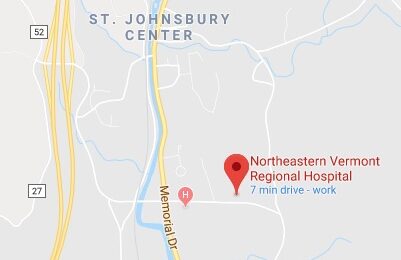What Exactly Is Public Health?
Lately, there’s been a lot of focus on public health.
In the last year, we’ve heard declarations of several Public Health Emergencies: for the COVID-19 outbreak; for natural disasters like devastating winter storms, hurricanes, earthquakes, and wildfires; and for the ongoing opioid crisis.
To respond to these emergencies, we need a strong public health workforce. We’ve been hearing in the news a lot about how investment in public health needs to be restored, so that locally, statewide and nationally we can have the resources needed to rebuild and maintain the infrastructure to respond to public health problems and crises, as well as for nonemergency public health work.
But some people may be wondering, what exactly is public health?
“Public health promotes healthy behaviors to help improve health and wellness of people and their communities and prevent people from getting sick or injured,” said Laural Ruggles, VP Marketing and Community Health Improvement at Northeastern Vermont Regional Hospital.
One of the most recent examples of public health in action is the response to the COVID-19 pandemic. Public health professionals regularly work to vaccinate individuals to prevent the spread of the disease, and educate the public about the importance of vaccinations. This work was highlighted as we saw the disease outbreak being tracked and the race to develop and distribute a COVID-19 vaccine unfold in real time so we could return to life as “normal.”
Public health professionals also work to limit health disparities, like making sure people have access to healthy food. In our own community we saw organizations come together to ensure that the increased demand for food created by the pandemic was met.
Ruggles said public health professionals work as a team with others in their communities to prevent disease by getting at the root causes of poor health. Once the causes are identified, then solutions can be implemented.
“Public health professionals create healthy environments to ensure everyone has clean air to breathe and clean water to drink, green spaces to recreate, safe places to walk and bike, and access to healthy foods,” Ruggles said. “We work with town officials, economic development specialists, and regional planners to build and maintain healthy communities where all can flourish and thrive.”
Before the COVID-19 crisis, public health efforts have long been underway in our community. In the Northeast Kingdom, organizations have partnered together as NEK Prosper! to address and improve the conditions that affect a person’s health.
NEK Prosper!’s mission is to improve the health and well-being of the people in Caledonia and southern Essex Counties by integrating efforts and services, with an emphasis on reducing poverty in our region. Subgroups of NEK Prosper!, called Collaborative Action Networks (CANs) implement strategies to ensure everyone is mentally healthy, well housed, financially secure, well nourished, and physically healthy.
The Physically Healthy CAN of NEK Prosper! identified lack of physical activity and lack of adequate active living infrastructure as issues in our community, and implemented the Energize 365 Community-Wide Campaign to promote physical activity.
Before COVID-19, you may have seen pop-ups in the park where you could join various free exercise sessions. You may have seen the smoothie bike – a stationary bike that makes healthy smoothies as you pedal – at a local event. You may have participated in the Energize Expedition, which encourages people to get active by participating in a variety of activities for a chance to win prizes. Most recently you may have seen walking maps with walking routes in Lyndonville and St. J on display at some local businesses, as part of the Walk Your Way to Better Health project.
These initiatives offer new ways for everyone in our community to be physically active, which can help reduce the burden of chronic disease like heart disease, diabetes, and some cancers, and can prevent early death.
The Families in Recovery Staying Together (FIRST) housing project was developed and implemented by the Well Housed CAN, which works to develop supportive housing programs to provide stable options for those with backgrounds to achieve affordable housing. The FIRST project is to help pregnant moms in recovery to have safe and stable housing while learning parenting, renting skills, and addressing their recovery goals.
The Financially Secure CAN is working to ensure people earn enough money to support themselves and their family, and not have to worry about money, by creating a space in downtown St. J that connects people to a variety of community services. The space is also being designed to help community members reduce barriers to employment, offer opportunities for skill and leadership development and encourage new interpersonal and professional connections on a resident’s path to achieving their short and long-term financial goals.
These initiatives are just a few of many public health-related efforts happening in our community. Each initiative is implemented with a goal of preventing problems from happening or recurring through education and providing ways to stay healthy.
Public health is important to improve the health and wellness of people, our community, and our nation. To get involved in NEK Prosper!, visit www.nekprosper.org.
We want to hear from you! Are there health topics or issues that you’d like to read about in an upcoming Vital Signs? Email us your suggestions at vitalsigns@nvrh.org, or mail them to NVRH, c/o Katie Bocchino, P.O. Box 905, St. Johnsbury, VT, 05819.
Sitemap | Privacy Policy | Site developed by Flek, Inc.
Northeastern Vermont Regional Hospital © 2020

